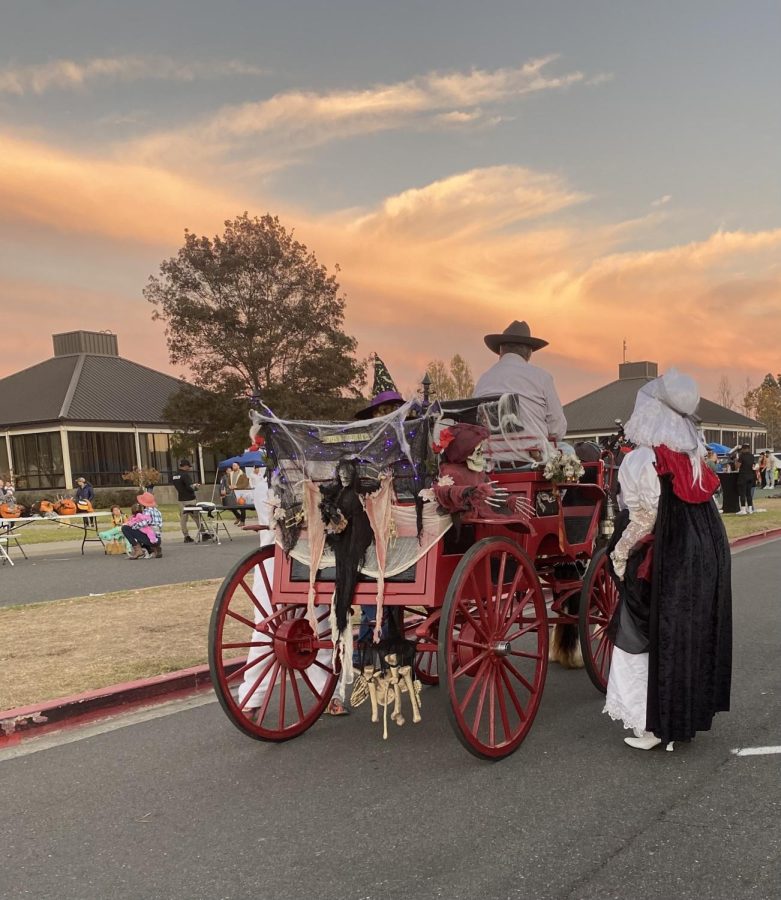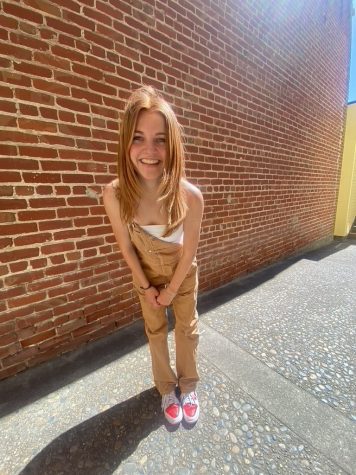Halloween is Spreading Like a Zombie Apocalypse
Insight into the origins and modern practices of Halloween, all around the world
November 10, 2022
What exactly is Halloween, one may ask? Halloween, originally named All Hallows Eve, is a holiday celebrated on October 31st. It originated over 2,000 years ago from the Celtics. The Celts lived in modern-day Ireland, the United Kingdom, and northern France. The Celts celebrated their new year on November 1st. November 1st is known as All Hallows Day, which translates to All Saints Day. It is a day to celebrate and honor the saints of the Christian Church. Halloween was created to mark the end of summer in preparation for the dark and stormy winter approaching. The Celts believed that the night before the new year, the boundary between the living and the dead would be blurred. On All Hallows Eve, they celebrated Samhain, where people would dance around bonfires in costumes to ward off these spirits.
On the other side of the world, during Pre-Columbian Mesoamerica, the season of the spirits was celebrated by the Aztecs who spent November 1st and 2nd honoring those who had passed on. This holiday is known as Día de Los Muertos, or the Day of the Dead. Today, during Día de Los Muertos, people build ofrendas, or offerings. These altars are filled with food, drinks, photos, and memories of these spirits’ lives. It is intended to welcome back the deceased. The 1st is a day to honor the children who have died and the 2nd is a day to honor the lives of adults.
Halloween spread to the United States in the 19th century. Soon after, the Irish Immigrants helped popularize the celebration nationally. America began to dress up in costumes and go from door to door asking for food or money. This tradition became known as “Trick-or-treating.” Today, Americans spend over $6 million on Halloween every year. However, many fear that the globalization of Halloween will be coupled with a loss of cultural significance.
In 1997, Halloween was established as a holiday in France. It was used as a marketing tactic in order to make a profit before Christmas. The ideas of the supernatural have also spread to Indonesia, where decorating, costume dress-up, and parties have begun. In China, the holiday is followed by people dressing up, going to parties, and clubbing. However, the tradition of trick-or-treating and decorating houses has not been captured, as well as the supernatural and the Western theories of evil and horror.
However, Halloween this year, which was just celebrated, has left many people mourning the loss of loved ones. In South Korea, in a small district called “Itaewon”, tens of thousands of residents and foreigners gathered to celebrate Halloween on Saturday night. The night was filled with K-pop music and dancing. However, the celebration was overcrowded and unsafe, leaving over 150 people dead and at least 150 others injured. People were smothered, and ambulances and rescue teams were unable to reach those who had collapsed in the alleyways of Itaewon. Itaewon was known for its nightlife and diversity – it was called Itaewon Freedom. Now it is a city of silence and mourning.
Unfortunately, Halloween has had its history of vandalism and violence. Some states have even debated the idea of banning the holiday. In the 1950s, the Northeast made October 30th Mischief Night, where people spent the night pulling pranks, by soaping windows, spraying shaving cream, egg throwing, and toilet paper tossing. Some participators even created fake body suicides and tripped people with barbed wires. In Detroit in the 1970s and 1980s, people set fires to trash cans and abandoned buildings. In 1984, over 800 fires had been set across the city. Detroit spent years with an enforced dusk-to-dawn curfew with neighborhood patrols. This night was called the Devil’s Night. Today October 30th is known as Angels’ Night in Detroit in honor of keeping the peace.
Halloween has become an internationally celebrated holiday, to honor both good and evil. Halloween is influenced by the adapting world of technology and social media. Some may assert that Halloween has a mind of its own, which spreads like spirits.


